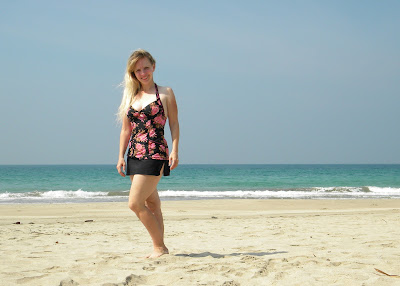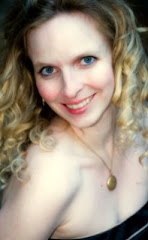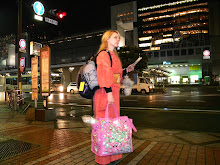 |
| pretty Burmese child wearing Thanaka face paint |
The people here walk slowly, languidly, their every movement like a cat stretching in the sun. There is no sense of urgency, no hurry. My day, like that of just about everyone at Ngwe Saung, starts when the first pale rays of sun toss light on my pillow. I can hear birdsong and the omnipresent voice of the ocean. Just outside my window, a boy with skin the colour of caramel sings as he waters the flowers.
The appearance of this place? It is like that one common
cliché of heaven, the one where a good man dies and wakes to find himself on an
empty stretch of beach, deep blue expanse of ocean on one side and fringed row
of tall green palm trees on the other. Ngwe Saung is the earthly incarnation of
that paradise.
Over the past few weeks, I’ve visited culturally significant
parts of Myanmar. I’ve been to Bagan and Inle, places where all tourists are
expected to go. I’ve also been to a few places where tourists, at least white
tourists, are such a rarity that the monks end up photobombing me.
 |
| Hey monk! Hey random Burmese girl! You're in my frame. |
My travels through inner Myanmar were amazing but also, they
were intense. It’s rough traveling here alone, especially on the local buses,
which sometimes break down and usually end up leaving me (and the other
passengers) a few miles from town in the middle of the night. Even more
stressful is making a bus transfer, as there are no written schedules and very
few people at the bus stations speak English. For this reason, I once end up stuck
overnight in the wrong city.
And so, I decide it’s time to relax. I’m ending my travels
through Myanmar by spending a week at the beach. It is serene here, gorgeous, lonely.
 |
| coastline of Ngwe Saung |
When I first arrive, I ask if I can get a discount since
I’ll be staying over a week.
“Sorry,” responds the staff girl with a smile. “Not
possible. This is high season.”
I look up and down the beach. It’s mid-day. Within my range
of vision, I see a total of five people.
“Um, yeah,” I say. “I’ll have to try and come back when it’s
less crowded.”
 |
| My bungalow is on the far right, just behind the first row of palms. |
My bungalow manages to be both beachfront and in the shade
of palm trees. At $15 a night, this is the most I’ve spent in Southeast Asia – out of my 5 months
of recent traveling – on accommodation. But it’s also on the low-end of hotel resorts
in Myanmar. If I stay at the Bay of Bengal Resort, for example, I could be paying
around $200 a night. It rather confuses me as to why some people spend so much
on their hotel rooms. I guess that roaches the size of Volkswagens – (Do you
suppose that’s how the Volkswagen Beetle got its nickname?) – are less likely
to make an appearance in bathrooms at a fancier hotel. Not having to deal with
them – which I do by closing the bathroom door and coming back later, after
they’ve had time to squeeze themselves back down the drainpipes – would definitely be worth a few extra bucks. But
that much? The fancier hotels also often boast of having a seaside pool as a
great amenity, but it seems more than a little hipster ironic to sit in a chlorine-laden
swimming pool and stare at a gorgeous, gentle ocean that’s only a few steps
away.
 |
| After just one week of Giardia, you, too, can be ready for swimsuit season! |
I meet some Norwegian men also staying at Ngwe Saung, but
instead of staying in a bamboo and wooden bungalow like me, they stay in a
fancier, pricier place. They hate it.
“I’ve been to a million beaches like this,” says Peter, with
a dismissive flick of his wrist toward the stately palm trees and turquoise ocean I’d already fallen in love with. “There’s nothing to do here.”
It suddenly strikes me that paradise has a lot to do with
one’s perspective.
There are no fire dancers on Ngwe Saung’s beach, no full
moon parties. There’s no loud music thrumming in the air. Peter’s right. There’s
nothing to do here, really – just swim in the lukewarm water, dream beneath thatched-palm beach umbrellas, watch the colours of the ocean change throughout
the day.
At one point, as I walk along the ocean’s edge, I see dozens
of jellyfish, the size of my hand, scattered along the shore. They are as
translucent and seemingly as delicate as glass. At another point, I find maybe seven
sand dollars, half-buried in the sand and sun-bleached white, having lain there
for who knows how many days or hours. They are brittle, and though I collect
them very carefully, most of them break before I return to my bungalow. Still,
having found them makes me feel lucky, like the way, as a kid, I used to feel a
surge of happiness at finding a quarter on the street, even though there was
not all that much, even back then, that a quarter could buy. It was more the
feeling of luck to find something overlooked by all other passersby. The
smallest of treasures.
The sun does not set here, but disappears. Through the
course of the day, it arcs across the sky and by evening leans over the Bay of
Bengal. About 15 minutes before nightfall, the sun blushes brilliantly and
lowers itself by the sea – but then, at a certain point in the horizon, still
well above the water, the sun simply vanishes. The day has gone. It is time to
shutter the bungalow windows – there are no screens – and tuck the canopied mosquito
netting around the bed. It is time to be lulled asleep, once again, to the
sound of waves against the shore.
 |
| Ngwe Saung wishes you were here! Just not too many of you . . . |








